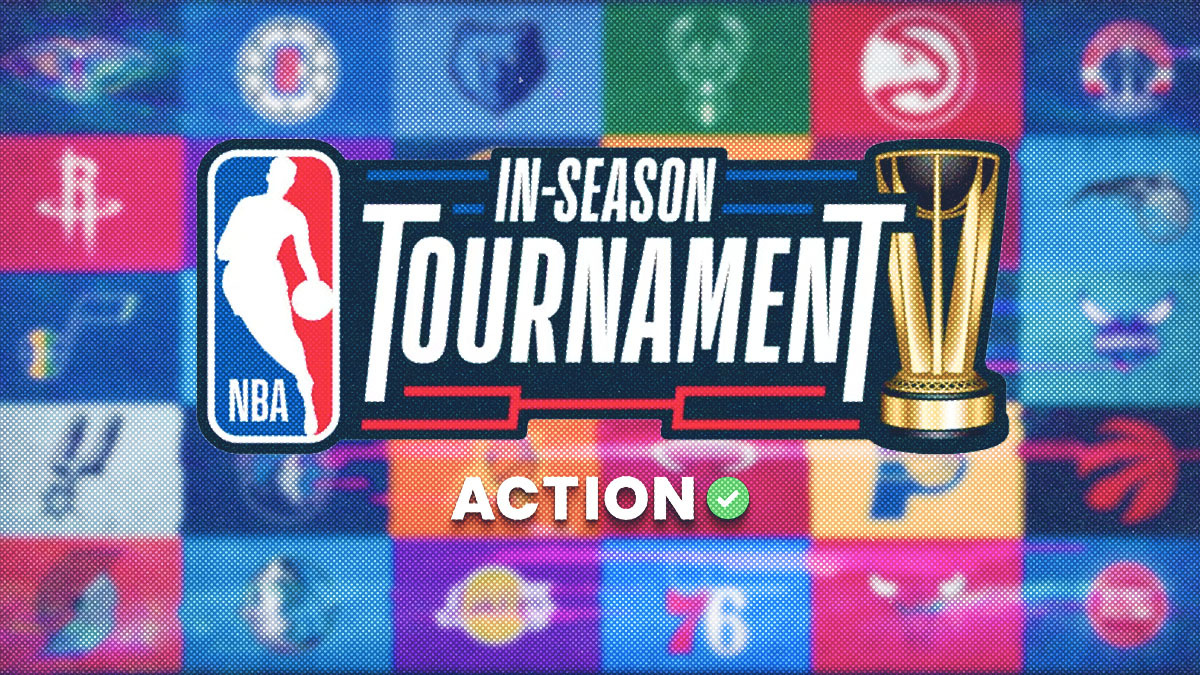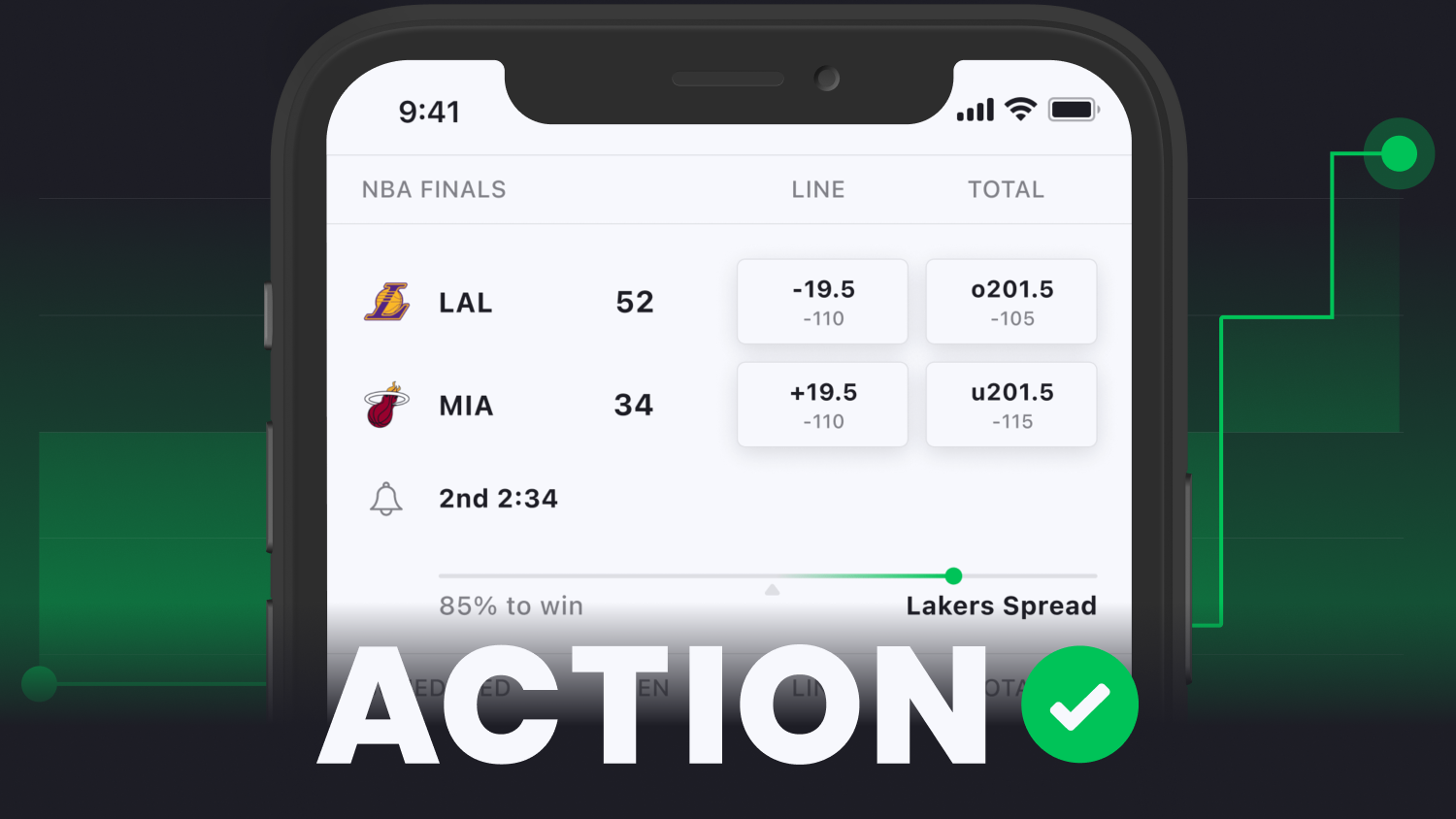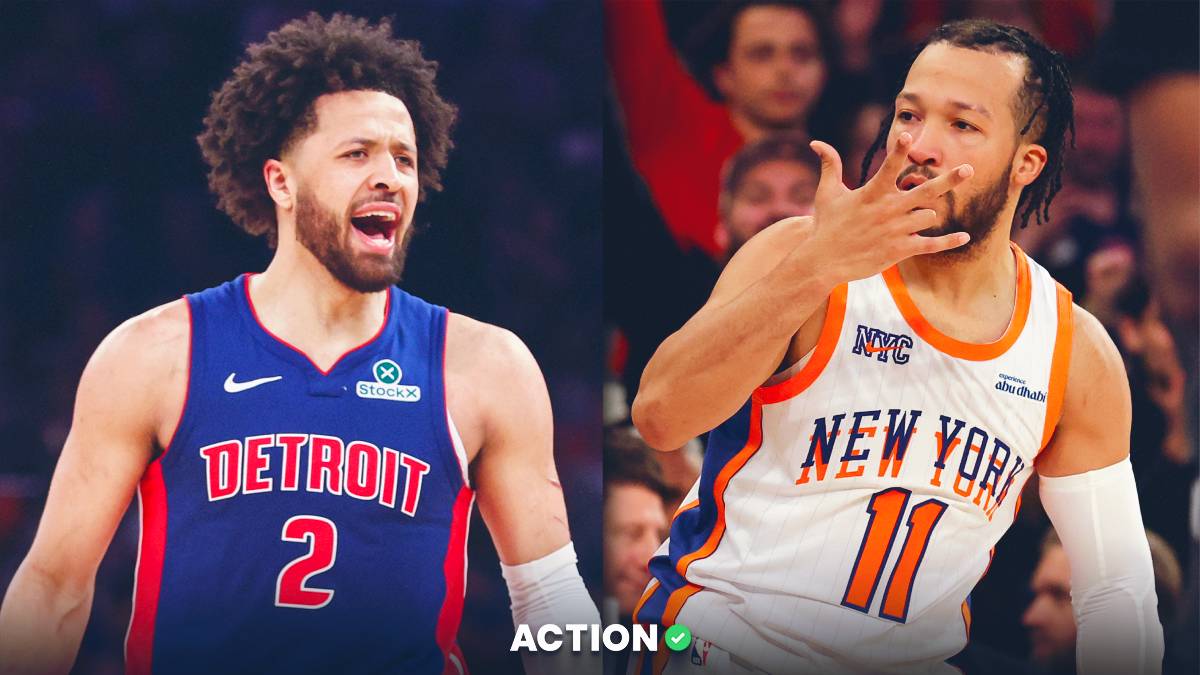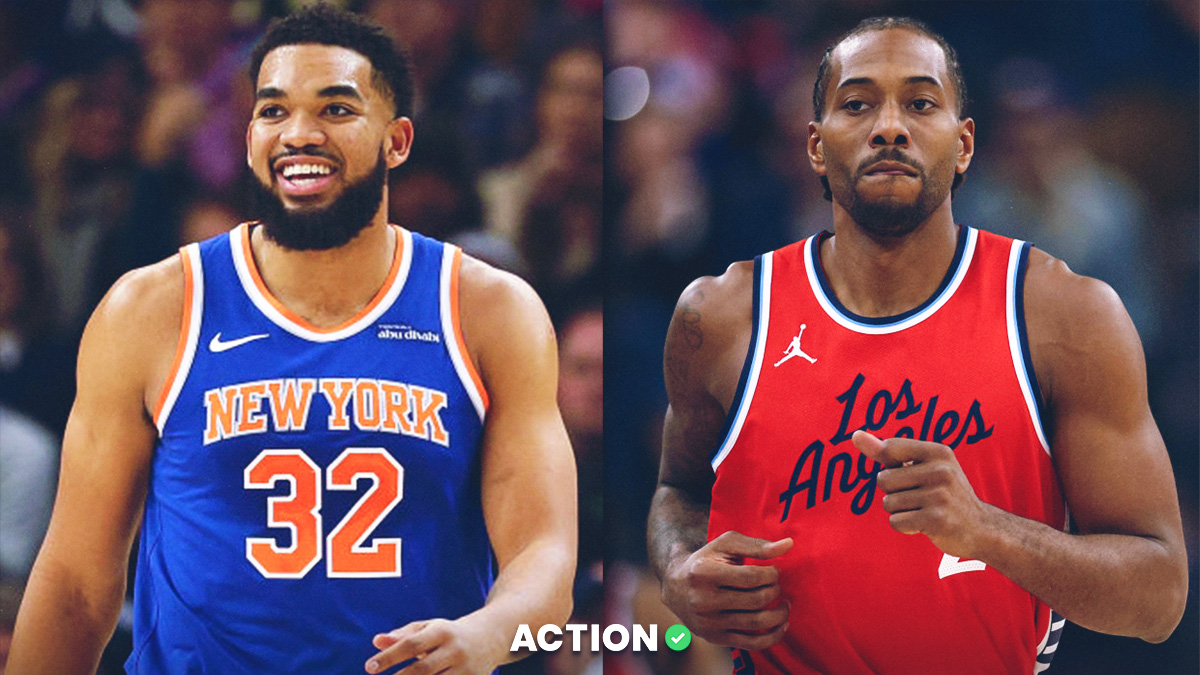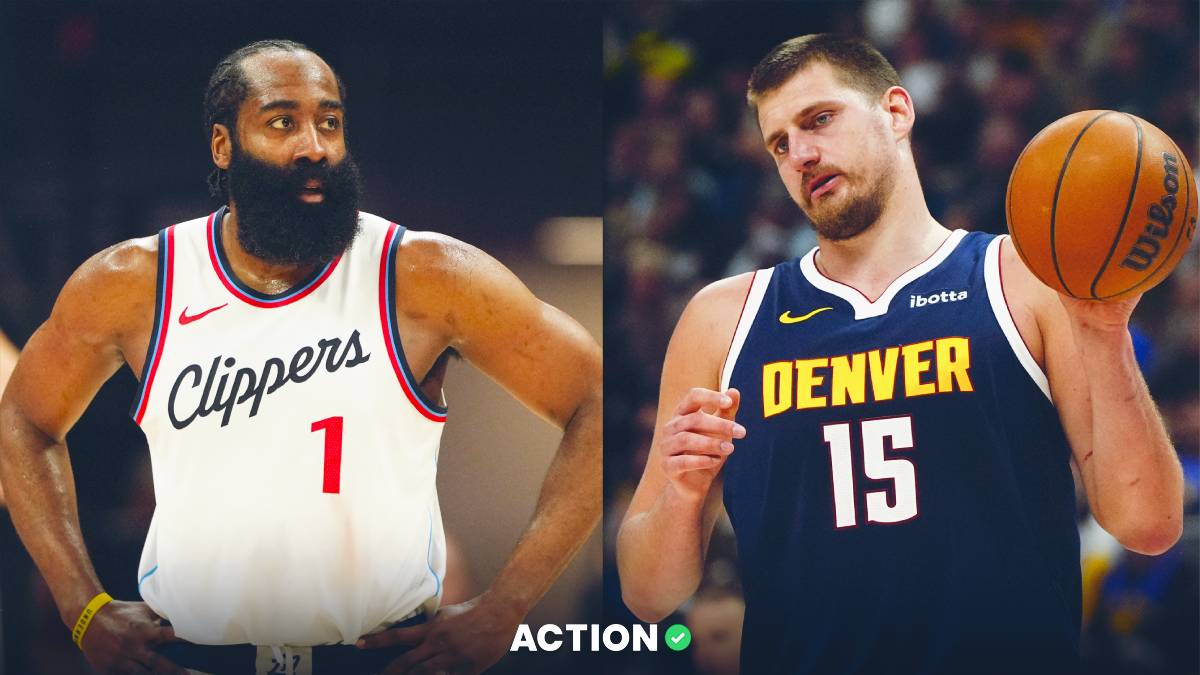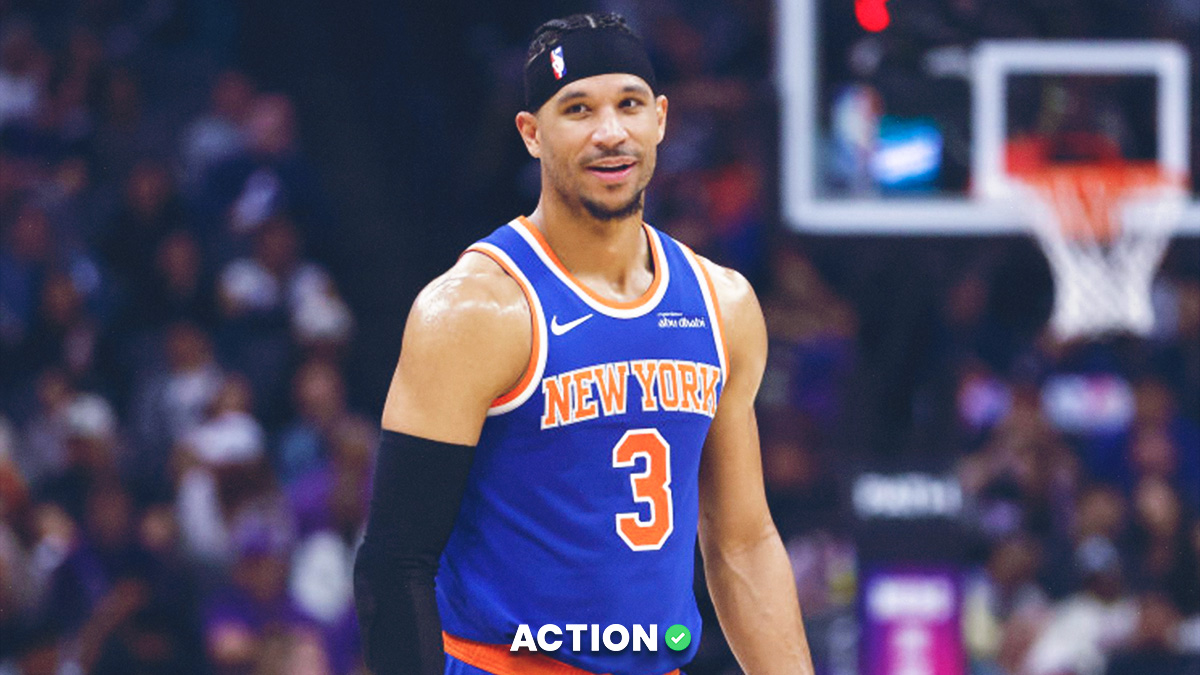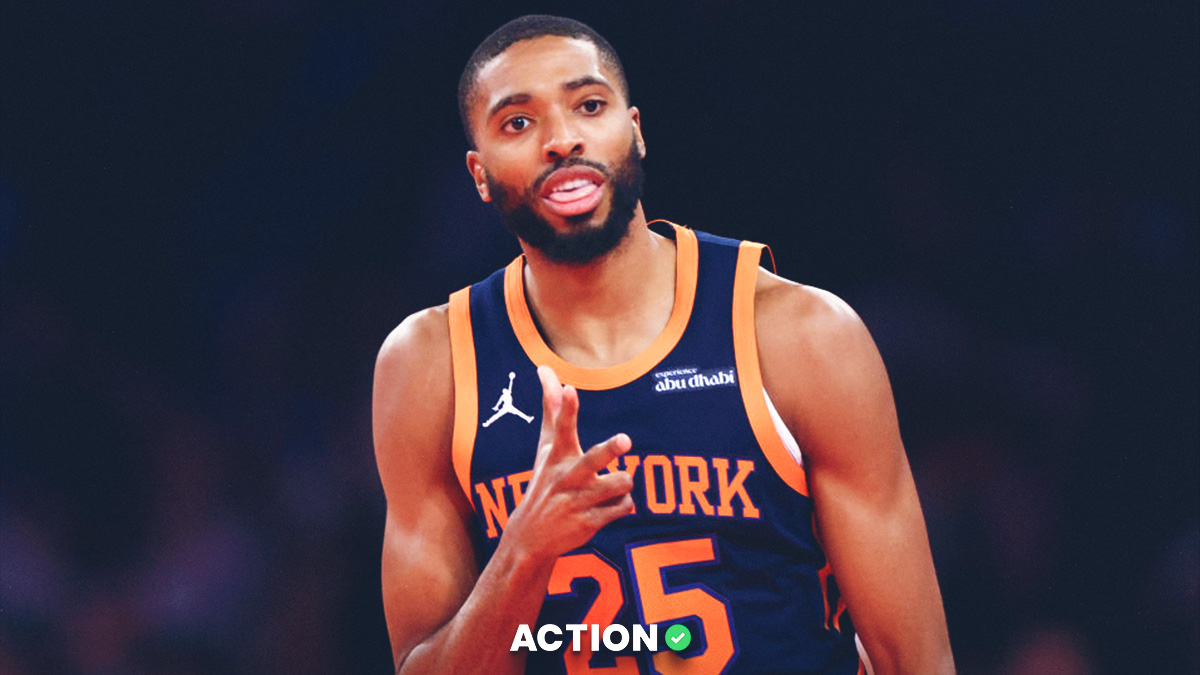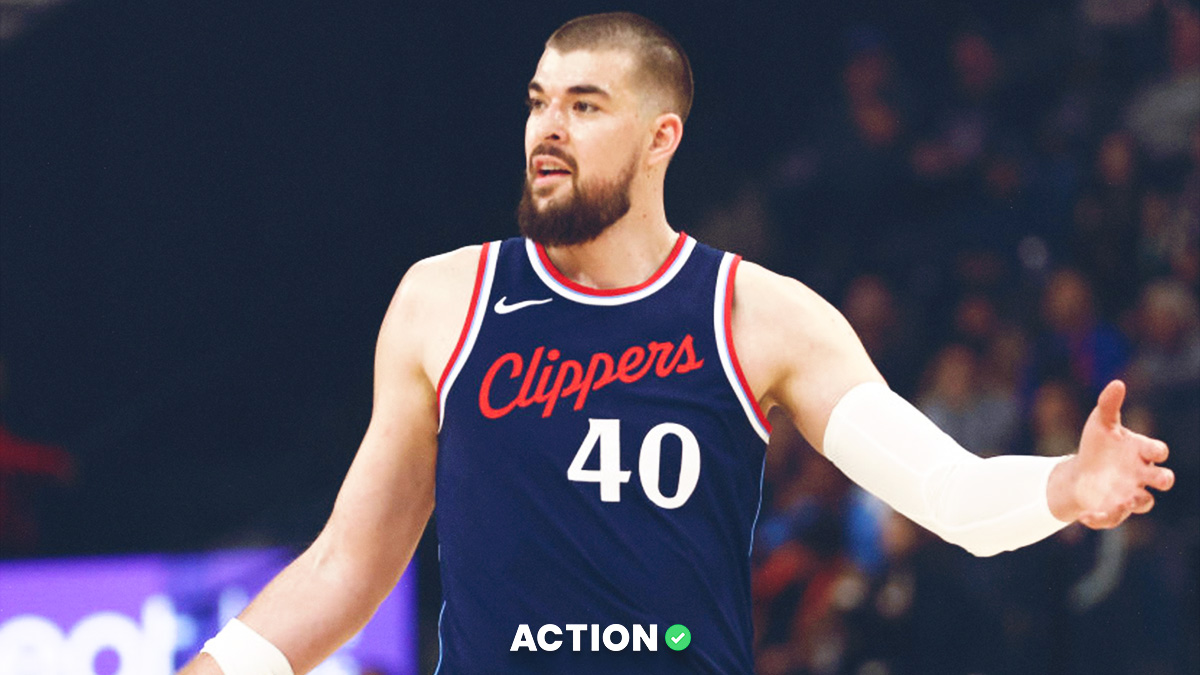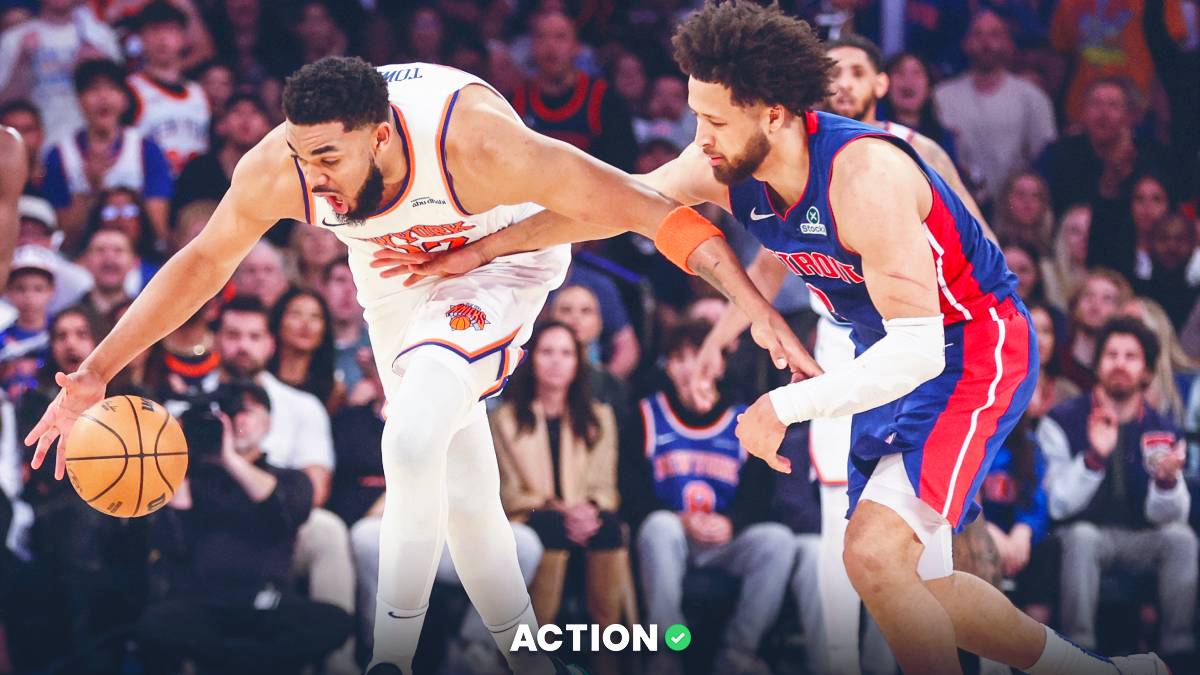It’s here! The NBA In-Season Tournament begins Friday. But there are still a lot of questions for fans and bettors alike. To help you answer your most pressing questions, we put together this handy-dandy FAQ to get you set for the NBA’s In-Season Tournament and the chase for the Cup.
This is the NBA In-Season Tournament explained.
The NBA In-Season Tournament Explained
What is the NBA In-Season Tournament?
The NBA is launching an “in-season cup” format and then following that with a single-elimination tournament for eight teams, with the final two rounds in Las Vegas.
You play four regular-season games in November, and based on your record (and then tiebreakers), you advance to the eight-team tournament. All four of those games count as regular-season games, too. Think of it like they exist in two worlds.
Then, in the second week of December, the eight teams play in a tournament format while the rest of the league plays normal regular-season games. The first two rounds of the tournament count as regular-season games; the championship does not.
Essentially, you get eight teams in a single elimination tournament with seeding determined by four November regular-season games.
What Do You Win For the NBA In-Season Tournament?
A Cup! Who doesn’t like a Cup? You get a big trophy with a cup on it!
Okay, fine. There’s also the most important prize to most people: cash. Via the AP:
"There’s a cash incentive, $500,000 per player on the winning team and smaller prizes ($50,000 to $200,000 per player) for the other teams that make the quarterfinals and semifinals. That works out to a total prize pool of about $18 million. And it should put a little extra meaning on early season games."
Many people have ideas on what exactly they should win, but most are flawed ideas. Let’s go over those quickly:
“A lottery pick!”: You know what will not make players compete? If the team wins, there is a chance it literally replaces that player with a cheaper (and maybe better) player in the draft.
“The No.1 seed!”: You can’t throw out the regular season. You can’t tell teams they can bust their backsides for six months to earn homecourt, but a random team that won three games in December gets it.
“Winner gets All-Star in their home market the next year!”: This one is not a bad idea, but it’s not feasible as the competition for those spots is intense and there are certain cities the NBA does not feel can support an All-Star Weekend due to logistics.
Will the Players Care?
This is honestly the biggest and most common question asked about the tournament. If you’re making $35,000,000, why do you care about $500,000, let alone $50,000?
The answer is that you likely don’t. And the players, even the lower-paid ones, won’t care about the regular-season games more than they will any regular-season game.
Despite the problem the NBA has suffered when it comes to load management and injuries, most players do care night to night because they want seeding for the playoffs and want just to play good basketball. Those games will be better than some regular-season games because none of these games are on a back-to-back.
But until we get to the actual tournament, single-elimination stage, the players are not going to go harder.
Once we get there? Well, it’s single-elimination, and that tends to bring out competitive spirits. Let me put it this way: These are the most competitive human beings on the planet, and they hate to lose. They might not want to win the In-Season Tournament, but they may very well not want the guy talking trash across from them to win it, either.
And for many players beyond the top tier, that $500,000 is a significant figure. If nothing else, the star players may want to compete for their teammates even if the money doesn’t move the needle for them.
Players will not care more about the group games than about any other regular-season game. They will care slightly more in the tournament than they do for a regular-season game, but not more than a game with playoff implications late in the season or a play-in tournament game.
Why Did The NBA Start an In-Season Tournament?
Money!
I mean, there are other reasons, but mostly money! They have everything sponsored. It’s a high-profile event in early December when college football’s regular season has ended and bowl season hasn’t begun.
It provides stakes for the fans and theoretically the teams. If the NBA's broader culture wasn’t so obsessed with playoff viability and if players had a greater game-to-game competitive spirit, or if the NBA season didn’t literally span eight months from start to end, this might be an incredible event.
But it could still be really good. We have increased stakes and different games.
It’s also something else to win. There will be a certain stigma at first attached to winning. “Oh, you won the Cup in December? Great job,” will say the sarcastic tweets.
But if you’re a young, up-and-coming team without a realistic shot of dethroning the Nuggets, Warriors, Celtics or Bucks in the playoffs, this is something to win and show what your team could be as time passes.
Also, this isn’t in the NBA’s top 10 reasons for hosting this, but there are a lot of things to bet on in this market, which makes it a lot of fun for bettors.
In the end, it gives teams something that isn’t the title to play for, it provides (slightly higher) stakes for regular-season games, and the NBA will make a lot of money on it.
NBA In-Season Tournament Tiebreakers
Via the NBA, here are the tiebreakers.
• Head-to-head record in the Group Stage;
• Point differential in the Group Stage;
• Total points scored in the Group Stage;
• Regular season record from the 2022-23 NBA regular season; and
• Random drawing (in the unlikely scenario that two or more teams are still tied following the previous tiebreakers).
Who Gets The In-Season Tournament Wild Card Spots?
The next-best teams are based on overall group stage record, followed by the tiebreakers above.
Will Coaches Care About The In-Season Tournament?
If you’re asking if players will rest, I’m not sure, but I lean no.
The league made many changes to try and disincentivize resting that went unheeded to start the season with a deluge of back-to-backs.
But the league has also pretty clearly communicated that they want these games, in particular, to be protected. There are no back-to-backs in group-stage games and only 10 3-in-4 night instances in the 60 games of the group stage.
There won’t be obvious reasons to justify holding players out.
If you’re a front office for a team with championship aspirations, you don’t want an extra game. But several front office members told Action Network this week that they don’t have any problem with their teams competing for it.
“That’s up to the players. We want to compete every night. You can’t be a team that runs away from it. You can be smart about the season, but that’s not what this is. And the financial incentives are really meaningful for some guys,” one executive said.
“Just because it’s not a priority for us doesn’t mean we shouldn’t compete for it. If we think we can win the title, why not go for this, too?” asked another.
Coaches are even more hardwired.
“Coaches want to win everything. They hate to lose — at least the good ones do,” one longtime coach said. “You’re right in that they may not want to win the thing, but they won’t want someone else winning either.”
That said, injuries are injuries. The Blazers are holding Scoot Henderson out with a sore ankle that isn’t serious.
“There are games where you’ll play hurt because your team needs it,” one executive said this week. “But there’s no reason to treat these games like the playoffs.”
How Do I Know if a Game is an In-Season Tournament Game?
Well, for starters, every game on Tuesdays and Fridays through November is a tournament game. Second, trust us, you’re going to notice.
What Can You Bet on The In-Season Tournament?
Alongside the tournament winner, you can bet on the group winner and MVP. FanDuel also offers props such as “(team) to go 4-0 in group play” and statistical averages in group play.


